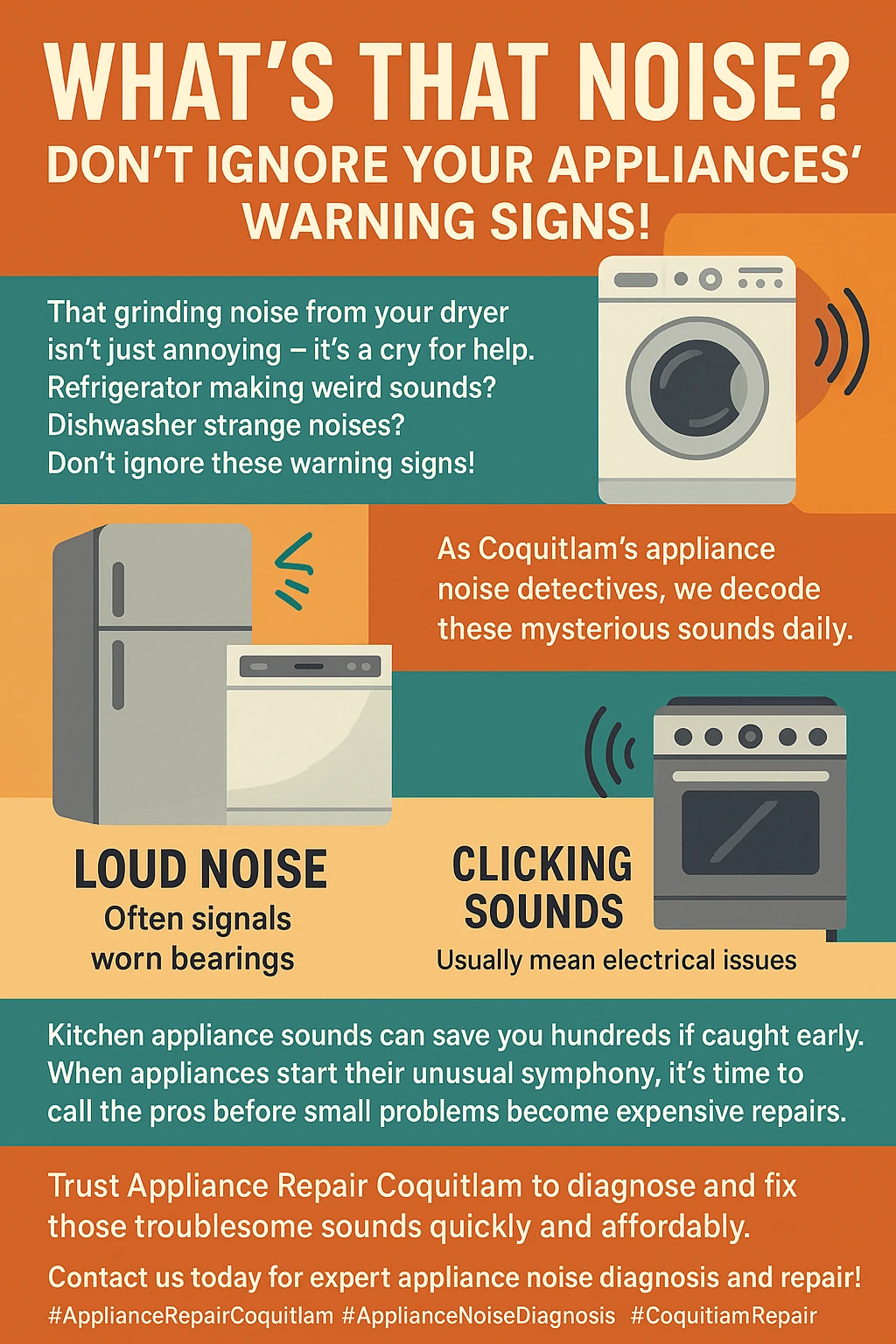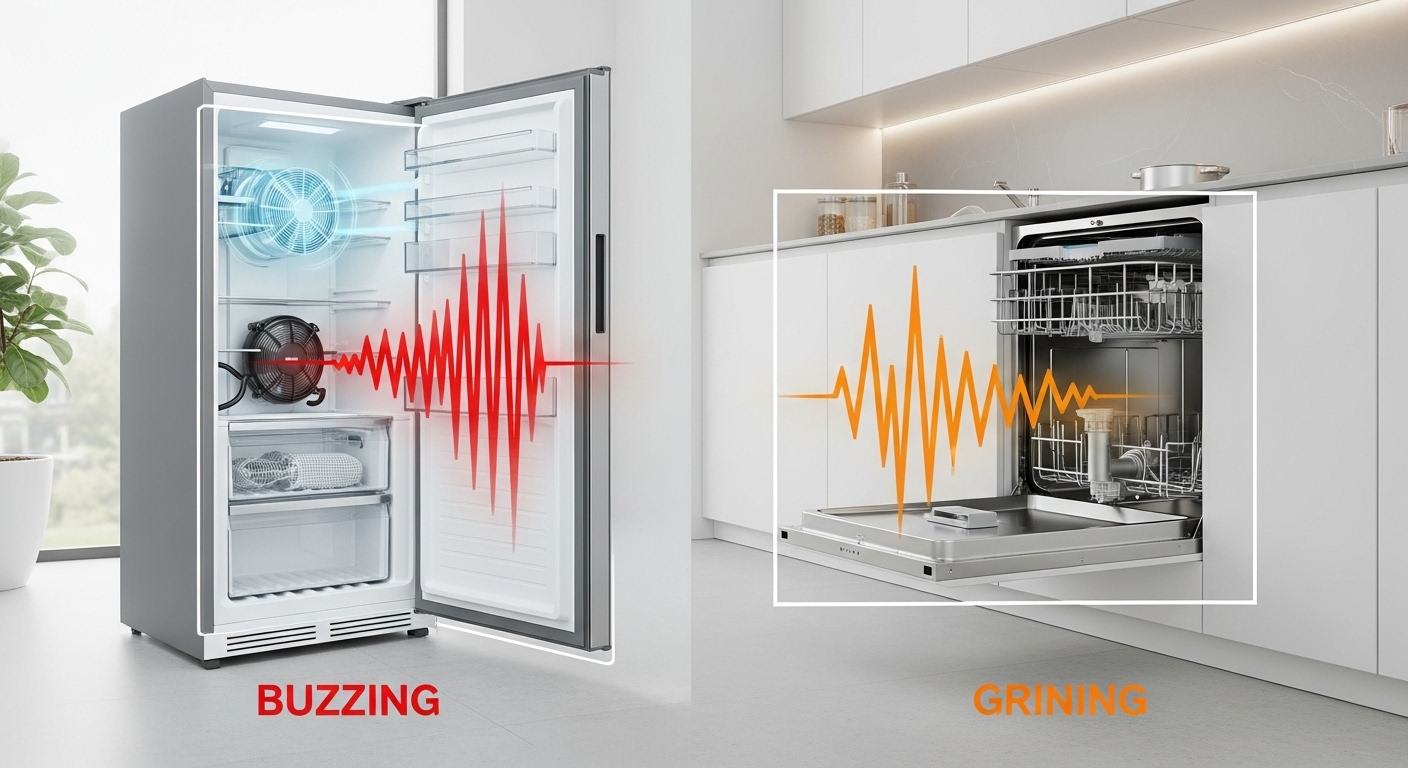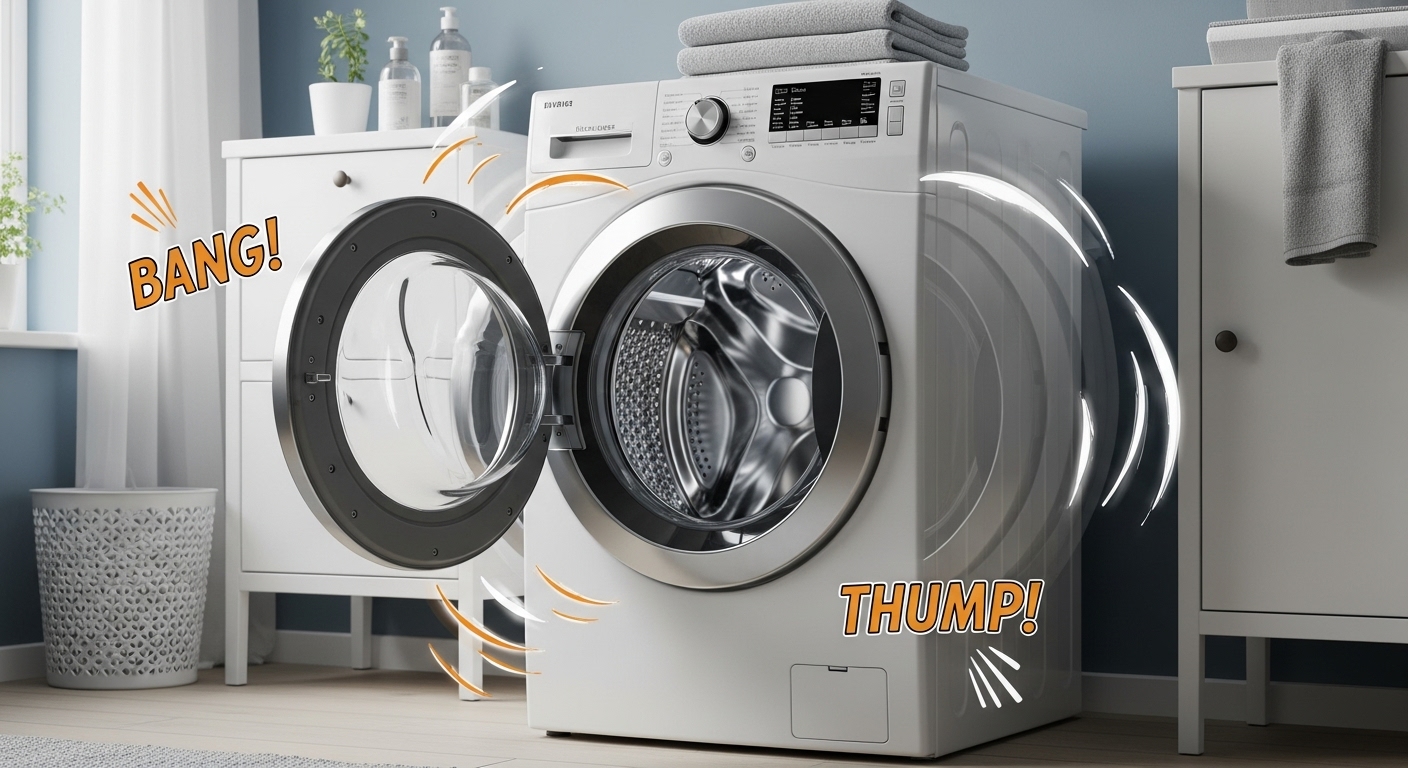The Appliance Noise Detective: How to Decode Strange Sounds From Your Kitchen and Laundry Room Before They Turn Into Expensive Repairs
Tired of playing guessing games with your appliances’ mysterious symphony of clicks, hums, and grinding sounds? Don’t panic just yet – we’re about to turn you into an appliance noise detective who can distinguish between normal operational chatter and expensive repair bills waiting to happen!
Picture this: you’re enjoying your morning coffee when suddenly your refrigerator starts making a sound like it’s auditioning for a heavy metal band, or your washing machine decides to perform an interpretive dance that sounds more like a construction site. These aren’t just random appliance tantrums – they’re actually your home’s way of sending you urgent messages about what’s happening inside those hardworking machines before things get seriously expensive.
Living in Coquitlam means dealing with unique environmental factors that can turn minor appliance quirks into major noise issues faster than you’d expect. Our coastal humidity, seasonal temperature swings, and the general wear and tear from daily use create perfect conditions for appliances to develop vocal habits that range from mildly annoying to downright concerning. The thing is, these sounds aren’t just background noise you should learn to live with – they’re actually early warning systems that could save you hundreds of dollars in emergency repair calls.
Understanding what these different sounds mean is honestly one of the most valuable homeowner skills you can develop, especially when you consider that catching problems early can prevent those jaw-dropping repair bills that make you question every life choice. Plus, knowing when you can handle a simple fix yourself versus when it’s time to call in the Coquitlam appliance repair professionals can literally be the difference between a $20 maintenance task and a $500 emergency service call.
Key Outtakes:
- Strange appliance sounds are your first warning system before costly breakdowns occur, potentially saving you $200-500 in unnecessary emergency repair calls
- Different appliance noises indicate specific mechanical issues that can be diagnosed at home using simple listening techniques and visual inspections
- Certain sounds like electrical buzzing or persistent grinding indicate immediate safety concerns requiring professional attention
- The 50% rule applies: if repair costs exceed half the price of a new appliance, replacement usually makes more economic sense
- Preventive maintenance based on sound recognition can extend appliance lifespan by 3-5 years and prevent most noise-related service calls

Understanding Your Home’s Appliance Language

Every appliance in your home basically has its own personality and way of communicating, kind of like having roommates who only speak through sound effects. The trick is learning to distinguish between normal operational chatter and those red-flag noises that mean trouble is brewing. Think of it this way – your appliances are constantly having conversations with you, you just need to learn their language to understand what they’re trying to say.
Normal appliances produce predictable, consistent sounds during their various operations. Your refrigerator should hum gently when the compressor kicks in, maybe click occasionally as the defrost timer cycles through its routine, and produce some soft gurgling as refrigerant flows through the system. These are all perfectly normal sounds that indicate your fridge is doing its job properly. However, when that gentle hum turns into loud buzzing that you can hear from the next room, or when clicking becomes constant and erratic, that’s when your refrigerator is basically waving a red flag.
The key to becoming an effective appliance noise detective is understanding that sudden changes in sound patterns are usually more concerning than the actual volume level. A machine that’s been quietly humming for years and suddenly starts making grinding noises is telling you something important about its internal condition. Similarly, new sounds that appear out of nowhere – like clicking where there was never clicking before, or rattling that seems to come from inside the machine – are worth investigating promptly.
What makes this even more important in our Coquitlam climate is that coastal humidity and seasonal temperature changes can amplify existing problems and create new friction points in your appliances. When metal components expand due to moisture in the air, they can start rubbing against other parts they normally clear comfortably, creating grinding and squeaking sounds that weren’t there before. Understanding these environmental factors helps you recognize when sounds might be weather-related versus signs of mechanical failure.
Kitchen Appliance Sound Diagnosis

Your kitchen is probably the most acoustically active area of your home, with multiple appliances running throughout the day and each one having its own distinct voice. Learning to interpret these sounds can prevent some seriously expensive surprises and help you maintain a smoothly functioning kitchen. Let’s start with the hardest-working appliance in your home – your refrigerator.
Refrigerator sounds are particularly important to understand because this appliance runs 24/7, and problems often announce themselves through audio cues long before they become visible issues. A healthy refrigerator produces a soft, steady hum when the compressor operates, occasional gentle clicking as the defrost timer cycles, and maybe some light gurgling sounds as refrigerant moves through the system. But when that humming becomes noticeably louder or changes pitch, you’re often looking at compressor issues or problems with the condenser fan motor.
One of the most concerning refrigerator sounds is persistent clicking that seems more frequent than usual. This often indicates problems with the defrost timer or, worse, a failing start relay. If your fridge is clicking constantly but not starting up properly, this usually means the compressor is trying to engage but can’t, which can lead to complete cooling failure if not addressed promptly. The clicking sound is literally the start relay attempting to send power to the compressor over and over again.
Grinding noises from your refrigerator are particularly alarming because they often indicate that moving parts are creating friction where none should exist. This might be your evaporator fan motor struggling because ice has built up around the fan blades, or it could mean that bearings in the fan motor are failing. Either way, grinding sounds almost always require professional attention because they indicate components that are actively being damaged with each operation.
Your dishwasher has its own vocabulary that’s worth learning, especially since dishwasher repairs can be particularly expensive when problems escalate. Normal dishwasher operation includes the swishing sound of water spraying against dishes, the gentle whir of the wash pump motor, and maybe some light rattling as dishes settle during the cycle. However, grinding sounds during any part of the cycle are cause for immediate concern.
When your dishwasher starts making grinding noises, it usually means something has gotten into the drain pump or wash pump – think small pieces of glass, metal twist ties, or food particles that are causing the impeller to work against resistance. This is actually one of the more dangerous dishwasher sounds because continued operation can damage the pump motor, leading to much more expensive repairs. If you hear grinding from your dishwasher, stop the cycle immediately and check the drain filter for foreign objects.
High-pitched buzzing from your dishwasher often indicates electrical problems or issues with the circulation pump bearings. This type of sound should never be ignored because electrical problems in appliances that use water can pose serious safety risks. If the buzzing is accompanied by any burning smells or if the dishwasher feels unusually hot to the touch, disconnect power immediately and call for professional service.
Laundry Room Noise Investigation

Moving into the laundry room, we enter territory where appliances are designed to handle heavy mechanical loads, which means the sounds they make can be more dramatic and the consequences of ignoring warning signs more expensive. Your washing machine and dryer are basically the workhorses of your home appliance family, and when they start making unusual sounds, it’s usually because they’re dealing with significant mechanical stress or component failure.
Washing machines naturally produce a variety of sounds during their different cycles, and learning to distinguish between normal operational noise and warning signs can save you from some seriously expensive repairs. During normal operation, you should hear gentle swishing and sloshing as water circulates, steady humming or whirring from the motor, and maybe some brief clicking as the machine switches between cycles or engages safety locks. These sounds follow predictable patterns that match the wash cycle phases.
However, when your washing machine starts banging like it’s trying to escape from the laundry room, that’s a completely different story. Loud thumping or banging during the spin cycle usually indicates an unbalanced load, which seems simple enough – but if redistributing the clothes doesn’t solve the problem, you’re likely looking at worn suspension components or broken drive belts. These are mechanical issues that require professional attention because they involve the machine’s internal balance and safety systems.


